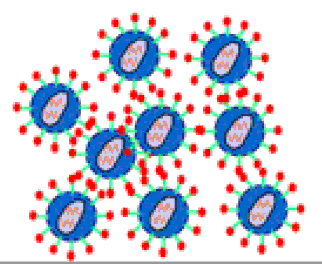Papers in the Biological Sciences

Qingsheng Li Publications
Document Type
Article
Date of this Version
2000
Citation
Published in The Journal of Infectious Diseases 181 (2000), pp. 867–871.
Abstract
Mycobacterium avium is the most frequent cause of disseminated bacterial infection in patients with human immunodeficiency virus type 1 infection and in rhesus macaques with simian immunodeficiency virus (SIV) infection. This animal model of AIDS was used to test the hypothesis that this frequent association is the result of reciprocal enhancement of replication of both microorganisms. The replication of M. avium and SIV was analyzed in lymphatic tissues obtained from rhesus macaques experimentally inoculated with SIVmac who developed or remained free of overt M. avium infection. In situ hybridization, quantitative image analysis, and staining of M. avium and of macrophages were used to assess the effects of coinfection on the replication of SIV and M. avium in vivo. There was no correlation between virus load and M. avium load in coinfected lymph nodes, and, with one exception, there was no evidence that M. avium coinfection of macrophages increased SIV replication.
Included in
Animal Diseases Commons, Comparative and Laboratory Animal Medicine Commons, Immune System Diseases Commons, Immunology of Infectious Disease Commons, Immunopathology Commons, Veterinary Infectious Diseases Commons, Veterinary Microbiology and Immunobiology Commons, Virology Commons, Virus Diseases Commons


Comments
Copyright © 2000 Infectious Diseases Society of America; published by Oxford University Press. Used by permission.